Learning gain pilot projects – HEFCE published the first annual report looking at the 13 pilot projects that are looking at how to measure learning gain and the value of the data that such measurements will produce. The final reports won’t be for a while – and then it will be interesting to see what happens.
- Learning gain has been suggested by many as a better measure of student outcome and teaching quality than the current metrics used in the TEF. However, to become a core TEF metric there would need to be a national standard measure that was implemented across the sector. The current position is that institutions are free to include learning gain in their TEF submissions.
- Of course the QAA or the OfS might start to be interested in any one particular model that they want to become standard. To make it work nationally there would either have to be mass testing (like SATs for university students) or another national survey alongside NSS and the new Graduate Outcomes survey (the new name for NewDLHE) – with surveys on enrolment and at other points across the lifecycle.
- The report suggests embedding measurement “in the standard administrative procedures or formal curriculum” – which means a survey or test through enrolment and as part of our assessment programme.
- The report notes that some institutions are already using the data that they are getting – for personalised support, in reviewing pedagogy and curriculum, to support promotional work for careers services or with alumni.
Industrial strategy – Greg Clark gave a speech on 10th July about the industrial strategy – notes have not been published, but there has been some tweeting – the main news is that there will be a formal green paper in the autumn. There was a mention of “self-reinforcing clusters that embed productivity via competition and collaboration”, and a repeat of the focus on place. It will be interesting to see what these self-reinforcing clusters look like and how they will be created and supported.
Social Mobility and Widening Participation
Sutton Trust Reports – The Sutton Trust have published reports on the State of Social Mobility in the UK, Social Mobility and Economic Success, and What the Polling Says.
Sutton Trust chairman Sir Peter Lampl said Britain had very low social mobility compared with other countries. “Our research shows that if social mobility were brought up to the western European average, GDP would increase by 2.1%, equivalent to a monetary value of £39bn. The government should make improving social mobility a top priority. Alongside other initiatives there needs to be a concerted effort to… provide fairer access to schools and universities and address the numerous social barriers which exist.” Source
Key points include:
- Public sentiment that people in the UK have’ equal opportunities to get on’ has dropped and only 29% believe today’s youth will have a better quality of life than their parents
- When asked which measures would most likely improve social mobility and help disadvantaged young people get on in life, almost half of respondents (47%) chose ‘high quality teaching in comprehensive schools’, ahead of two social mobility policies adopted by the main parties in the recent election: ‘lower university tuition fees’ (cited by 23%) and more grammar schools (8%).
- Without concerted effort, social mobility could deteriorate further due to trends shaping the future of work, including the rise of disruptive technologies, new ways of working, demographic changes and globalisation. Additionally we may see less stable full-time employment, greater demand for technical skills, and an increased value of essential life skills (such as confidence, motivation and communication). This will advantage those from higher socioeconomic backgrounds, who typically have greater opportunities to develop these skills.
- There has been a large increase in demand for STEM jobs. Studies show that there is a greater proportion of students from lower socioeconomic backgrounds in STEM subjects than in other subjects such as law and medicine. This could be positive for social mobility as the demand for STEM skills grows. In addition, technology could also create more opportunities for individuals to re-skill themselves through the use of free/low cost online learning platforms (such as MOOCs).
- A modest increase in the UK’s social mobility (to the average level across Western Europe) could be associated with an increase in annual GDP of approximately 2%, equivalent to £590 per person or £39bn to the UK economy as a whole (in 2016 prices). One factor driving this relationship is the fact that improved social mobility should lead to an improvement in the match between people and jobs in society. Greater mobility means both that the talents of all young people are recognised and nurtured, and that the barriers to some jobs are reduced—these entry barriers exist because of biases in recruitment processes or inequality of educational opportunity.
Recommendations:
- State schools must do more to develop “soft” or “essential life skills” in less advantaged pupils, through a richer programme of extra-curricular activities.
- Promotion of the apprenticeship model and vocational tracks, including the new ‘T-levels’ will be needed to ensure the supply of skills meets the demand in the labour market. Apprenticeships should combine workplace training with off-site study, and lead to a professional accreditation. There should be a focus on higher and advanced apprenticeships, along with automatic progression.
- More should be done to increase the study of STEM subjects (particularly among women) to ensure young people are equipped for the changing world of work.
Mary Stuart blogs for Wonkhe: Social mobility can be much more than just widening HE access. Excerpt: what does this all mean for the work of universities to support upward social mobility? The focus on social mobility already grows our remit beyond widening access towards considering added value and employment. Our role as anchor institutions takes this further, to incorporate the wider economic and societal environment into which our students will graduate. Drawing together the breath of university activities in this way is particularly important for institutions operating in those areas that are seeking to catch up: it can include our work with schools, the design of new courses to meet employer demand, and expanding our provision into further education and more diverse delivery of higher education.
Schools – Justine Greening’s speech at the Sutton Trust Social Mobility Summit 2017 as (reported on the BBC): “Education Secretary Justine Greening has announced the creation of an “evidence champion” who will make sure that decisions on improving schools in England are based on real evidence. “We have a lot of evidence about what works in schools, but it’s not spread within the school system,” she said. Sir Kevan Collins, chief executive of the Education Endowment Foundation, will be the first to take the role. Ms Greening said her top priority would be to improve social mobility
Widening Participation – In a compelling article, “I went from care to Cambridge University. Let me show you where the barriers are”, a care-leaver student writes about the cultural and psychological barriers she faced at university and urges institutions to do more than just facilitate access and bursaries to HE for WP students. She touches on the persistence of unhelpful messages about “not for the likes of us”, discouragement, peer attitudes and lack of awareness, alongside the general challenges a child in care has to overcome.
- “Many solutions have been proposed, such as lowering entry grades for students from marginalised backgrounds, which I support. But such remedies will only ever help the tiniest fraction of those targeted, as so few care leavers even get to the point where a lower grade requirement may allow them to apply. Instead, what is needed is a radical overhaul of the way we conceive of social mobility in this country: from the merely economic, to the cultural. And the government needs to ensure that everyone – no matter their postcode or budget – has access to culture, literature, art, politics and science: not just at school, but in their neighbourhood and community. Studying these subjects needs to feel possible for children and young people from all backgrounds. There’s a reason why I’ve succeeded where others like me have stumbled: a reason that’s not related to my hard work, tenacity, or intellect … for most of my childhood I was surrounded by books, art and culture. It was not a lofty dream for me to apply to university. In my experience, nobody gets anywhere worth going without some degree of privilege. Our most important job is not to celebrate those who might have “pulled themselves up by their bootstraps”, but to ensure that those born with little social privilege have access to the information and cultural advantages that most people reading this can probably take for granted.”
Applications – the national picture
UCAS statistics have confirmed a 4% drop in full time applications nationally within the 2017 cycle. Particularly notable is the 19% reduction in nursing applications (attributed to the removal of bursaries and new fee paying status), alongside a 96% fall in EU nurses seeking to work in the UK.
They also report a 5% decrease in EU applications to HE institutions, offset slightly by the predicted slight rise in overseas applications. Applications from mature students continues to fall, which has also shows up in the nursing applications.
Media coverage
Independent Providers – The Independent HE Survey 2017 highlights few changes to the make-up of independent providers. They remain relatively small organisations that are industry-focussed and often deliver specialist programmes through varying models and durations. The survey found that 55% of independent providers believe the Higher Education and Research Act changes will benefit their institution and only 3% do not plan to register with the Office for Students. The independent sector with their specialist business focussed delivery are well placed to capitalise on the parliamentary drive for industrial strategy, productivity and competitiveness, alongside the reviews of tertiary education and the ripple effects from the shake up of apprenticeships. 22% of independent providers plan to apply for Taught Degree Awarding Powers. The majority of independent providers support a different funding model across tertiary education, with 60% pressing for funding based on academic credit, not the academic year. Of the independent providers surveyed 50% offer part-time and flexible learning (a current government and OFFA priority), 40% offer online, distance and blended learning, 16% run accelerated degree programmes and 10% offer apprenticeships – all of which the Government are pressing traditional HE institutions to do more of.
Graduate outcomes – On Thursday HESA published their Experimental Statistical First Release on Destinations of UG leavers from alternative providers (in 2015/16).
EU (Repeal) Bill – The EU (Repeal) Bill was presented at Parliament on Thursday. See BU’s policy pages for the background and controversial aspects of this element of Brexit legislation. It is described by the government as “technical in nature rather than a vehicle for major policy changes”. It repeals the European Communities Act 1972, but as so much UK legislation and rules are dependent on (and cross refer to) EU rules, there are two more controversial aspects. Firstly, it converts EU law into UK law – preserving existing law as it is, un-amended (but ready to be amended later in the usual way – and then, most controversially, it gives ministers “temporary powers” to “correct” the transposed law if it does not function effectively. These changes will be made in statutory instruments subject to parliamentary oversight (but these generally get less debate than primary legislation, and the likely volume of them will make long debate very difficult – estimated at 800-1000 statutory instruments). There is a great deal of concern about the correcting powers in particular, but a few practical examples will be needed to see what this means in practice – these will not doubt emerge in the debates on the bill. The notes say:
“The correcting power can only be used to deal with deficiencies that come as a consequence of the UK leaving the EU. Deficiencies might include:
- Inaccurate references. These could include references to EU law or to the UK as a member state.
- Law that gives the Commission or EU institution a function to provide services or regulate, if the UK and EU agree these arrangements won’t continue.
- Law that gave effect to a reciprocal or other kind of arrangement between the UK and the European Commission or EU member states. If these arrangements do not continue to exist in practice, the law that gave effect to them will be deficient”
There are specific fact sheets on a number of areas including:
There’s a helpful BBC article here
Tuition fees, student loans etc. – The debate on tuition fees has continued, read Jane’s updated blog for the Lighthouse Policy Group. The BBC had a story summing up the status of the debate.
Select Committee News – On Wednesday MPs voted for select committee chairmanship using the alternative vote method. The number of committees a political party can chair is proportional to the number of seats they hold within the House of Commons. The news surrounding the chairs appointment speculates that Theresa May will face renewed challenge as many of the MPs elected to chair these powerful committees voted to Remain in the Brexit referendum.
- Robert Halfron (Conservative, Harlow) has been appointed Chair of the Education Select Committee.
- Rachel Reeves (Labour, Leeds West) has been appointed Chair of the Business, Energy and Industrial Strategy Select Committee.
- Nicky Morgan (Conservative, Loughborough) has been appointed Chair of the Treasury Committee.
- Normal Lamb (Lib Dem, North Norfolk) has been appointed Chair of the Science and Technology Committee.
- Damian Collins (Conservative, Folkestone and Hythe) has been appointed Chair of the Culture Media and Sport Committee.
- Hilary Benn (Labour, Leeds Central) has been appointed Chair of the Exiting the EU Committee.
- Dr Sarah Wollastone (Conservative, Totnes) has been appointed Chair of the Health Committee.
- Yvette Cooper (Labour, Normanton, Pontefract and Castleford) has been appointed Chair of the Home Affairs Committee.
- Neil Parish (Conservative, Tiverton and Honiton) has been appointed Chair of the Environment, Food and Rural Affairs Committee).
- Stephen Twigg (Labour and Co-operative, Liverpool and West Derby) has been appointed Chair of the International Development Committee.
- Maria Miller (Conservative, Basingstoke) has been appointed Chair of the Women and Equalities Committee.
Parliament enters recess next week (Commons on Thurs 20, Lords on Fri 21). This is the period when MPs return to their constituencies and focus primarily on local matters. Although the select committee chairs are now in place due to recess its likely little business will occur until parliament reconvenes mid-way through the first week of September.
Parliamentary Questions
Thangam Debbonaire (Labour, Bristol West) has tabled a parliamentary question due for answer next week: What recent assessment has been made of the effect of changes in immigration policy on levels of university recruitment?
Lord Jopling has asked: How any higher education provider that does not obtain a Bronze status or higher in future Teaching Excellence Frameworks will be categorised and which HE providers declined to participate in the TEF? (due for response Wed 26 July).
Jane Forster Sarah Carter
VC’s Policy Adviser Policy & Public Affairs Officer
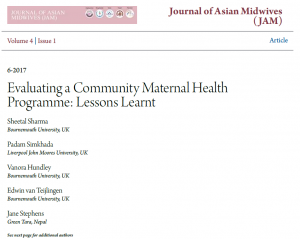 Congratulations to Sheetal Sharma whose latest article appeared in today’s new issue of Journal of Asian Midwives [1]. Sheetal wrote the paper ‘Evaluation a Community Maternal Health Programme: Lessons Learnt’ with her PhD supervisors Dr. Catherine Angell, Prof. Vanora Hundley, Prof. Edwin van Teijlingen and Prof. Padam Simkhada (Liverpool John Moores University & FHSS Visiting Professor) and the director of Green Tara Nepal Mr. Ram Chandra Silwal and the founder of Green Tara Trust, London, Dr. Jane Stephens. The Journal of Asian Midwives is an Open-Access journal hence this article is freely available across the globe.
Congratulations to Sheetal Sharma whose latest article appeared in today’s new issue of Journal of Asian Midwives [1]. Sheetal wrote the paper ‘Evaluation a Community Maternal Health Programme: Lessons Learnt’ with her PhD supervisors Dr. Catherine Angell, Prof. Vanora Hundley, Prof. Edwin van Teijlingen and Prof. Padam Simkhada (Liverpool John Moores University & FHSS Visiting Professor) and the director of Green Tara Nepal Mr. Ram Chandra Silwal and the founder of Green Tara Trust, London, Dr. Jane Stephens. The Journal of Asian Midwives is an Open-Access journal hence this article is freely available across the globe.
 On the 18th July Jo Johnson confirmed the governments commitment to underwrite all H2020 projects where the application is submitted before the UK’s departure from the EU. He confirmed that this includes two stage application processes as long as the first stage is submitted before we leave and the application is subsequently approved. The government’s underwrite will also include schemes not directly administered by the Commission but that award Horizon 2020 funding.
On the 18th July Jo Johnson confirmed the governments commitment to underwrite all H2020 projects where the application is submitted before the UK’s departure from the EU. He confirmed that this includes two stage application processes as long as the first stage is submitted before we leave and the application is subsequently approved. The government’s underwrite will also include schemes not directly administered by the Commission but that award Horizon 2020 funding.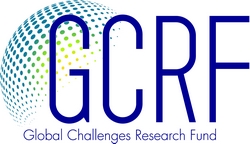 The second GCRF Research Councils UK Collective Fund call “Growing Research Capability grants” worth £225m is due to come out soon. Keep an eye out and watch this space for more information.
The second GCRF Research Councils UK Collective Fund call “Growing Research Capability grants” worth £225m is due to come out soon. Keep an eye out and watch this space for more information.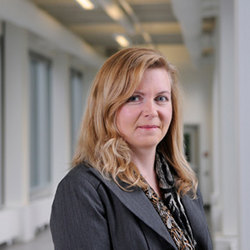

 re you an academic researcher?
re you an academic researcher? The UK Parliament is committed to working with as diverse a range of people as possible. NERC have been working for a few years to inform and engage academic researchers in the work of Parliament through training and other activities. NERC are aware that some groups of academics engage with Parliament more than others, and would like to find out why.
The UK Parliament is committed to working with as diverse a range of people as possible. NERC have been working for a few years to inform and engage academic researchers in the work of Parliament through training and other activities. NERC are aware that some groups of academics engage with Parliament more than others, and would like to find out why.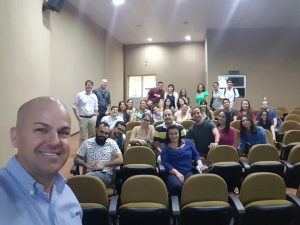 visit to the Federal University of Rio Grande do Norte (UFRN), in Natal, where Miguel delivered two presentations to tourism master students and staff. The first one was research related and focused on ‘How can research centres contribute to increase academic research and publication? BU’s experience’. In the afternoon Miguel shared one of the topics he teaches at BU with a presentation about ‘Events as a strategic marketing tool for city branding’.
visit to the Federal University of Rio Grande do Norte (UFRN), in Natal, where Miguel delivered two presentations to tourism master students and staff. The first one was research related and focused on ‘How can research centres contribute to increase academic research and publication? BU’s experience’. In the afternoon Miguel shared one of the topics he teaches at BU with a presentation about ‘Events as a strategic marketing tool for city branding’.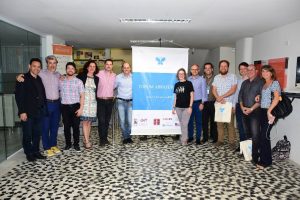 he next stop was Recife (Pernambuco state) where Miguel attended the ATLAS Americas and ABRATUR conferences, organised by the Pernambuco Federal University (UFPE). At the ATLAS Americas conference Miguel delivered a paper co-authored with BA Events Management graduate Giulia Calcagno on ‘Photographic triggers of engagement with event pictures on Instagram’. At the ABRATUR (International Academy for the Development of Tourism Research in Brazil) Forum, he delivered a keynote on “My internationalisation story: challenges and strategies”. As a founding member of the Academy, Miguel also participated in a strategic meeting of the Academy .
he next stop was Recife (Pernambuco state) where Miguel attended the ATLAS Americas and ABRATUR conferences, organised by the Pernambuco Federal University (UFPE). At the ATLAS Americas conference Miguel delivered a paper co-authored with BA Events Management graduate Giulia Calcagno on ‘Photographic triggers of engagement with event pictures on Instagram’. At the ABRATUR (International Academy for the Development of Tourism Research in Brazil) Forum, he delivered a keynote on “My internationalisation story: challenges and strategies”. As a founding member of the Academy, Miguel also participated in a strategic meeting of the Academy .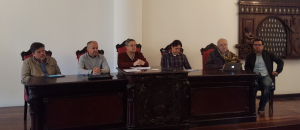 At Parana Federal University (UFPR) Miguel was a member of the panel examining a post-doc report by Dr. Osiris Marques on “The impact of the Olympic Games 2016: an analysis of the tourist profile, of the economic impact and of the quality of the tourist experience in Rio de Janeiro”.
At Parana Federal University (UFPR) Miguel was a member of the panel examining a post-doc report by Dr. Osiris Marques on “The impact of the Olympic Games 2016: an analysis of the tourist profile, of the economic impact and of the quality of the tourist experience in Rio de Janeiro”.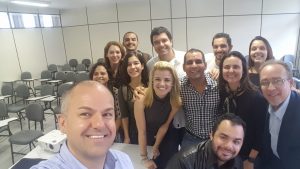
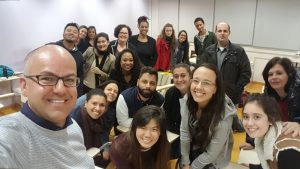
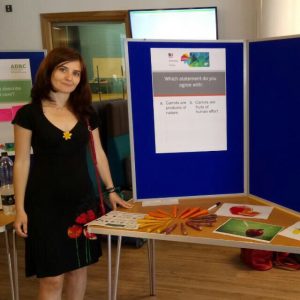
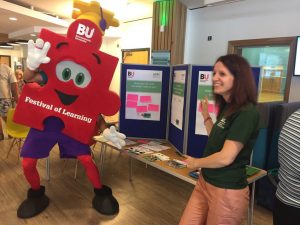
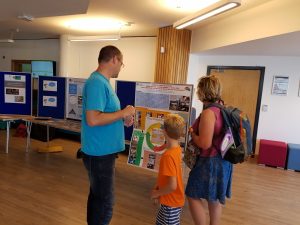
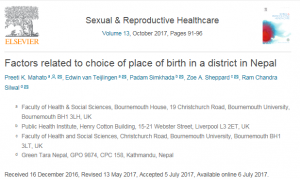
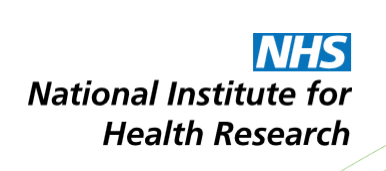 The National Institute for Health Research is recruiting medical scientists, practitioners and lay people to join its pool of peer reviewers.
The National Institute for Health Research is recruiting medical scientists, practitioners and lay people to join its pool of peer reviewers.
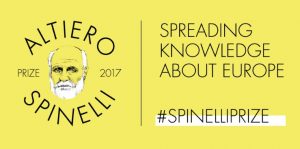



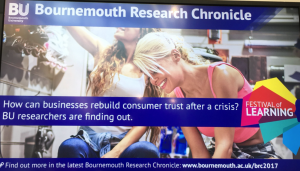 Trust Repair team has delivered a successful Festival of Learning 2017 event on 11 July titled
Trust Repair team has delivered a successful Festival of Learning 2017 event on 11 July titled 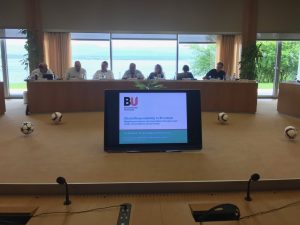











 SPROUT: From Sustainable Research to Sustainable Research Lives
SPROUT: From Sustainable Research to Sustainable Research Lives BRIAN upgrade and new look
BRIAN upgrade and new look Seeing the fruits of your labour in Bangladesh
Seeing the fruits of your labour in Bangladesh Exploring Embodied Research: Body Map Storytelling Workshop & Research Seminar
Exploring Embodied Research: Body Map Storytelling Workshop & Research Seminar Marking a Milestone: The Swash Channel Wreck Book Launch
Marking a Milestone: The Swash Channel Wreck Book Launch ECR Funding Open Call: Research Culture & Community Grant – Application Deadline Friday 12 December
ECR Funding Open Call: Research Culture & Community Grant – Application Deadline Friday 12 December MSCA Postdoctoral Fellowships 2025 Call
MSCA Postdoctoral Fellowships 2025 Call ERC Advanced Grant 2025 Webinar
ERC Advanced Grant 2025 Webinar Update on UKRO services
Update on UKRO services European research project exploring use of ‘virtual twins’ to better manage metabolic associated fatty liver disease
European research project exploring use of ‘virtual twins’ to better manage metabolic associated fatty liver disease